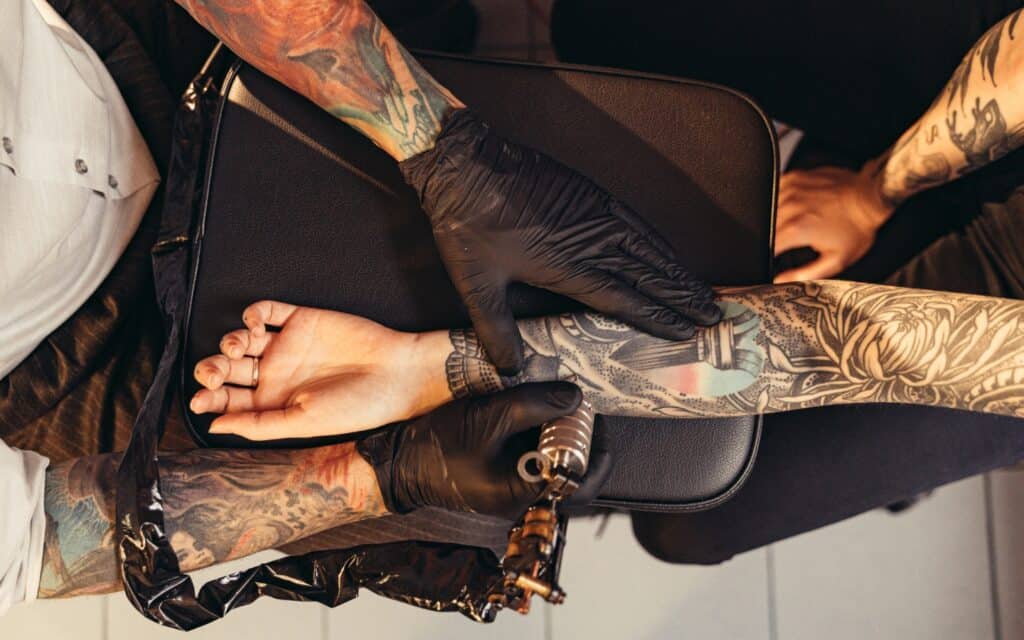One worry I find many people have before getting their new Tattoo is about fading. While Tattoos may be permanent, it isn’t true that they will always keep their vibrancy. Buy why exactly do colors fade, and what exactly can you do about it?
Colors fade for a variety of reasons, your aging skin, UV rays from the Sun, the body's immune response to ink particles, and the quality of the ink used when getting Tattooed.
Understanding why do tattoos fade is the first step in understanding how to prevent tattoo degradation for both the artist and the client.
For Tattoo artists, the knowledge helps inform techniques and choices, from the depth of ink application to the types of pigments used, ensuring that the artwork remains as vibrant as possible for as long as possible.
For Clients, it helps to make informed decisions about tattoo placement, size, and color, as well as motivate them to apply the appropriate tattoo aftercare that is vital for long-lasting vibrant tattoos.
Reasons Why Do Tattoos Fade
As mentioned previously, there are a number of reasons why Tattoos fade. But what exactly is the cause of each issue?
1. Skin Cell Turnover
One of the primary reasons tattoo colors fade is due to the natural process of skin cell turnover.
The skin is the body’s largest organ, and it continuously regenerates itself, this leads to old skin cells being shed and replaced by new cells in a cycle that typically lasts about 27 to 30 days.
Tattoo ink is deposited into the second layer of skin, known as the dermis.
The dermis is somewhat insulated from the most active layer of cell turnover, which occurs in the outermost layer known as the epidermis.
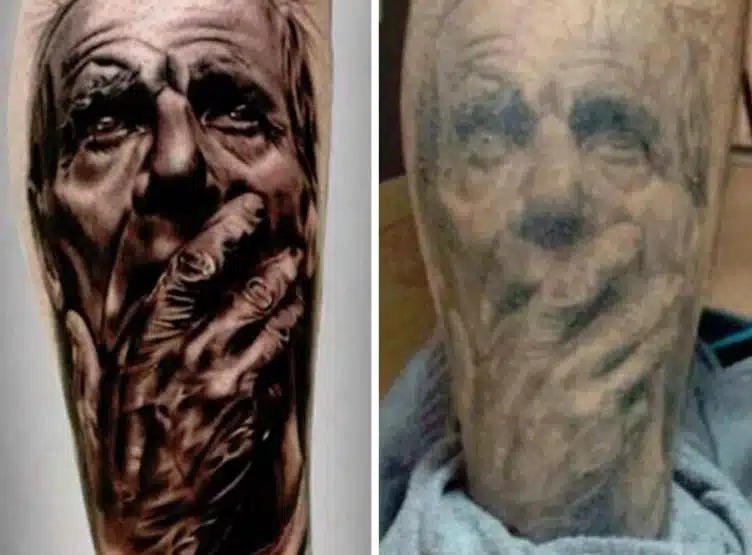
Photo credit: Spotlight
Unfortunately for Tattoos, over time, even the deeper layers of the skin undergo renewal, and the immune system gradually removes foreign particles, including tattoo pigments.
This natural cycle affects the sharpness and brightness of the tattoo. As the tattooed skin regenerates, some ink particles are carried away with the shed cells, gradually fading the tattoo's color.
This process can also be exacerbated by factors such as the depth of ink placement.
If ink is not placed deep enough in the dermis, it may be more susceptible to the effects of cell turnover in the epidermis.
2. Ink Depth and Quality
As stated before, the depth at which tattoo ink is deposited into the skin significantly influences how well a tattoo withstands the test of time.
Ideally, your tattoo ink should be placed into the dermis, but if the ink is deposited too shallowly in the epidermis, it is more likely to fade quickly due to rapid cell turnover.
On the other hand, if the ink is placed too deeply, it can lead to ink migration, where the ink spreads out under the skin, blurring the tattoo's lines and details.
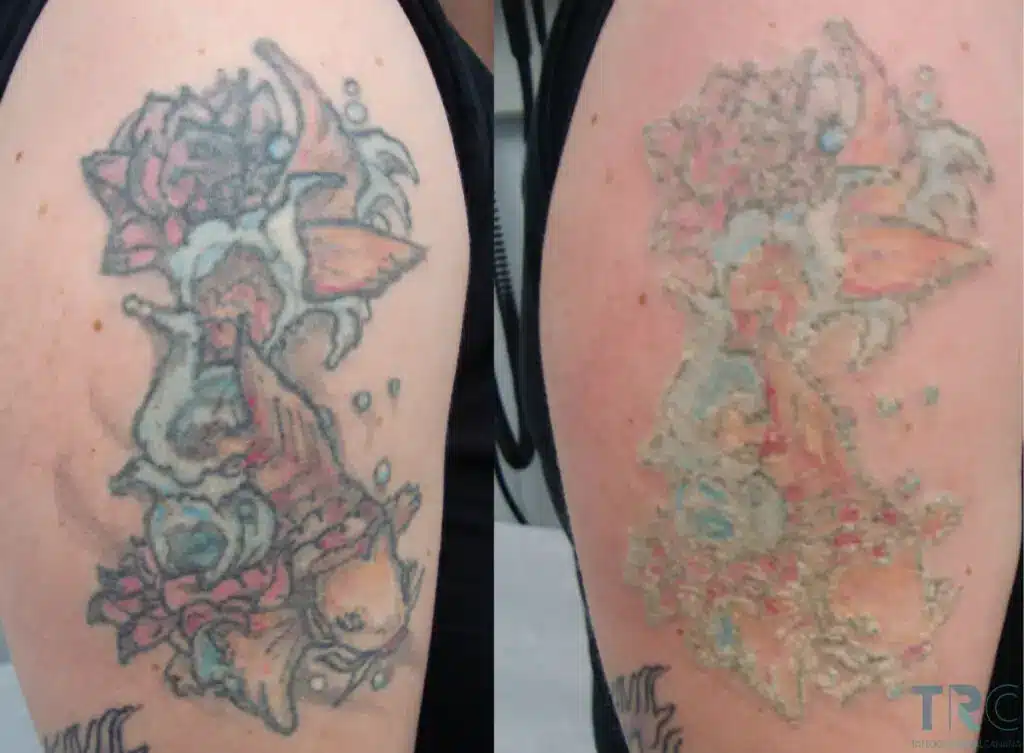
Photo credit: Vegan Tattoo Studios
The quality of the ink also plays a crucial role in its lifespan. High-quality tattoo inks are designed to be more resilient against fading and are less likely to break down or be absorbed by the body's immune system.
These inks contain more stable pigments under UV exposure and can maintain their vibrancy and clarity for longer periods.
Cheap or low-quality inks will fade more quickly and can lead to allergic reactions and other skin complications, which further affect a tattoo's appearance.
3. UV Exposure
Ultraviolet light, or UV light from the sun, is a major contributing factor to the fading of tattoo colors.
UV rays break down the chemical structure of tattoo pigments, gradually causing the vibrant colors to fade and become less distinct over time.
This effect is similar to how sunlight can bleach fabric or fade the paint on a car.
The extent of fading due to UV exposure can vary depending on the color and composition of the tattoo ink.
Lighter colors like yellow and pink are typically more susceptible to UV-induced fading than darker colors such as black or dark blue.
This is because different pigments absorb and react differently to UV light, with some being more stable than others.
4. Environmental Factors
UV light isn’t the only environmental factor you need to consider when it comes to your Tattoo fading.
Other environmental elements can also contribute to the fading of tattoos, such as extreme weather conditions like high humidity, excessive heat, or extreme cold.
These can affect the skin’s health and, consequently, the appearance of tattoos.
For example, high humidity can increase sweating, which might lead to more frequent washing and potentially faster ink degradation.
Airborne pollutants can have a subtle but cumulative effect on skin health and tattoo ink integrity.
Particulate matter, chemicals, and other pollutants can accelerate skin aging, and as the skin deteriorates, so does the clarity and vibrancy of tattoos.
Regular exposure to chlorinated water in swimming pools or salt water can also affect tattoo pigments.
These waters can cause the ink to fade more quickly than it would naturally due to the chemical reactions between the water treatments and the ink.
5. Aging and Lifestyle Factors
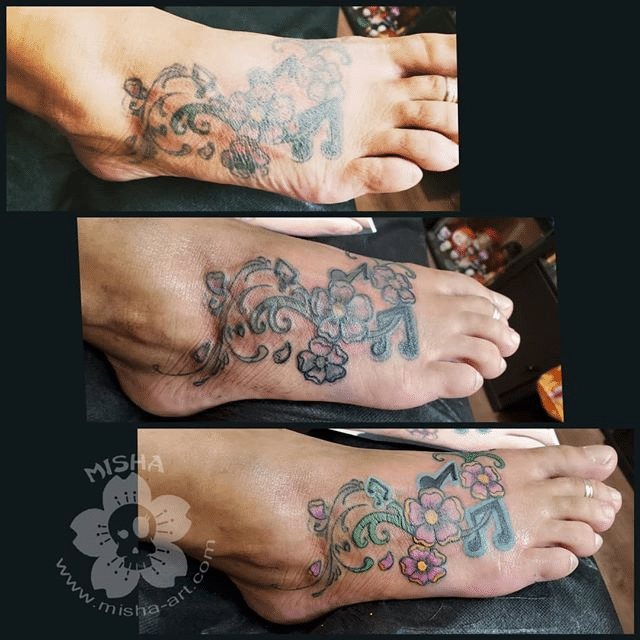
Photo credit: Facebook
Tattoos change over time not only because of external factors but also due to changes within the body itself.
Aging and various lifestyle choices can significantly influence the appearance of tattoos.
As we age, our skin undergoes several changes. It loses elasticity, becomes thinner, and the production of natural oils decreases.
These changes can affect the sharpness and clarity of tattoos. As skin sags or stretches, tattoos may distort and fade.
Habits such as smoking can accelerate the aging process of the skin due to reduced blood flow, which can affect the vibrancy of a tattoo.
Similarly, excessive alcohol consumption can lead to skin dehydration, making tattoos look duller.
A healthy diet rich in antioxidants can protect the skin and potentially slow the aging process.
Adequate hydration keeps the skin supple and healthy, which can enhance the appearance of tattoos.
Regular exercise increases blood circulation, which can help maintain skin health and vibrancy.
However, excessive weight gain or loss can stretch or shrink the skin, affecting how tattoos look.
How To Stop My Tattoo Colors From Fading
Unfortunately, fading over time is inevitable due to your natural skin processes and aging. However, there are effective strategies that can help to minimize fading.
Let’s explore some practical steps that can be taken to protect tattoos from the common causes of fading, ensuring that your body art remains vibrant for longer.
Sun Protection
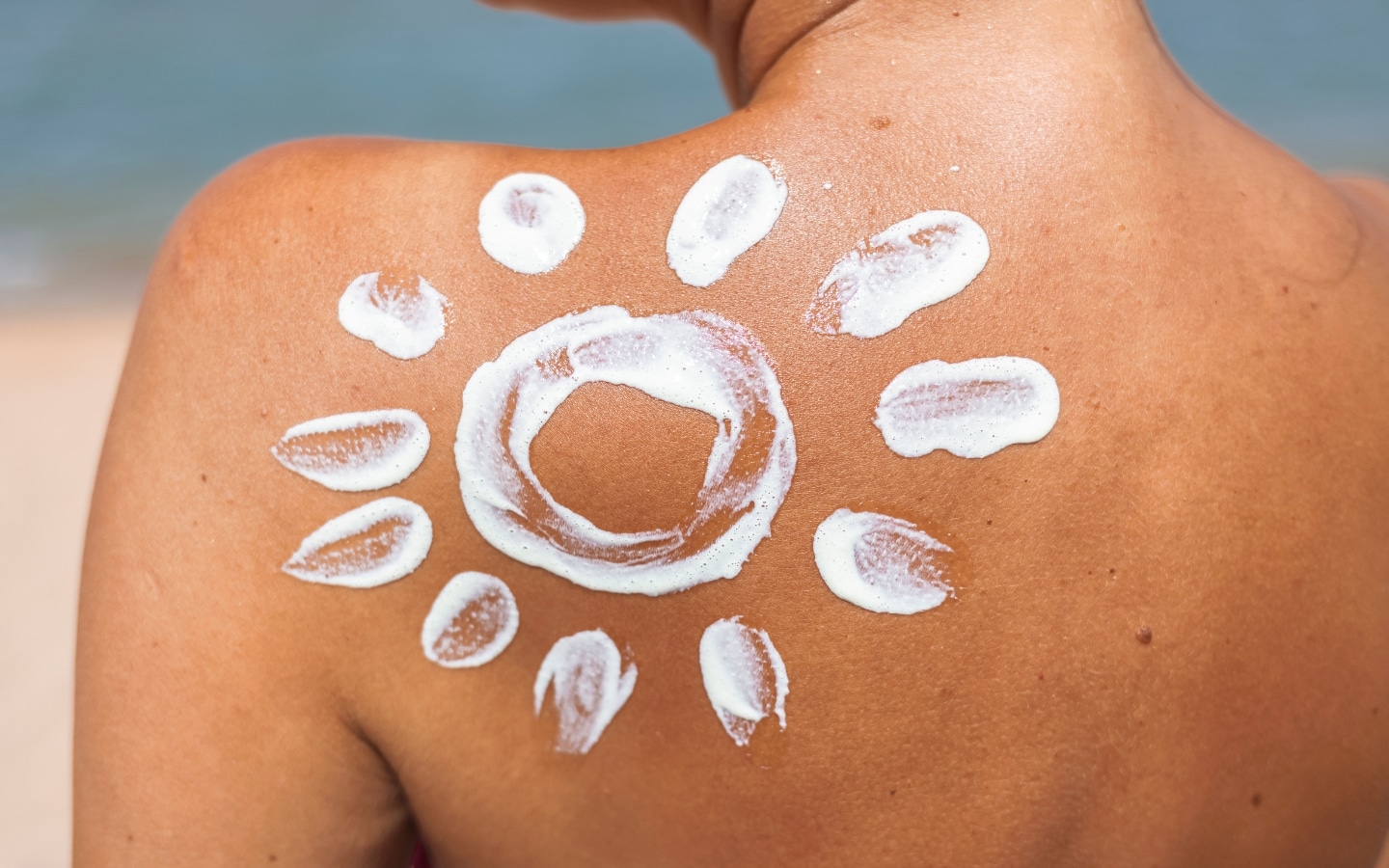
One of the easiest and most effective ways to prevent tattoo fading is to protect them from the sun's harmful UV rays.
Apply a broad-spectrum sunscreen with an SPF of 30 or higher, as it is crucial for tattooed areas, especially when exposed to direct sunlight.
Sunscreen not only helps to prevent the fading caused by UV radiation but also protects the skin from sunburn and potential skin damage.
Consider covering your tattoos with clothing when spending extended periods in the sun. Fabrics with a tight weave or specially designed UV-protective clothing offer additional protection.
Try to avoid sun exposure during peak hours when UV rays are strongest, typically between 10 a.m. and 4 p.m.
If you plan outdoor activities outside these hours, you can significantly reduce the amount of UV exposure your tattoo receives.
Quality of Ink and Artist's Skill
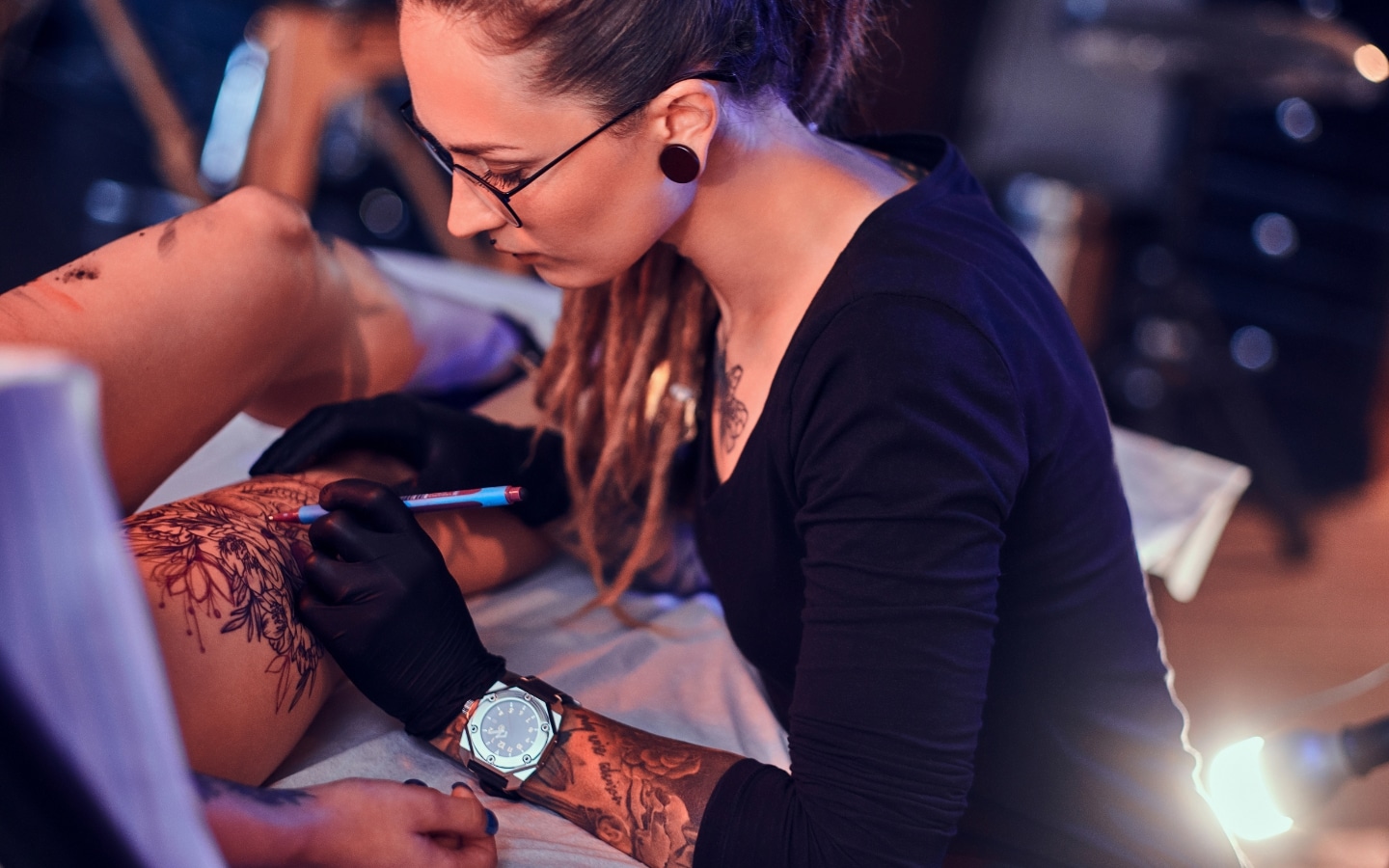
The longevity and vibrancy of your tattoo are greatly influenced by the quality of the ink used and the skill of the tattoo artist applying your ink.
First, you should invest in high-quality tattoo ink, as it will be essential. Premium inks are formulated to resist fading, stay vibrant longer, and are less likely to cause allergic reactions.
These inks often have a higher pigment density and are designed to break down less readily under UV exposure or other environmental factors.
Look for a skilled tattoo artist, as they will know the right techniques to ensure that the ink is deposited correctly into the dermis.
This precision helps in minimizing the effects of skin cell turnover and immune system clearing, which can cause fading.
Experienced artists also understand how different skin types react to tattooing, allowing them to adjust their technique as needed.
Remember to always follow the appropriate steps to identify a safe tattoo parlor when it comes to getting a new Tattoo.
By following the aftercare advice provided by your tattoo artist religiously, your tattoo vibrancy will last far longer.
Proper aftercare plays a significant role in how well a tattoo heals and retains its color. This includes keeping the tattoo clean moisturized, and avoiding picking or scratching.
Aftercare Treatment
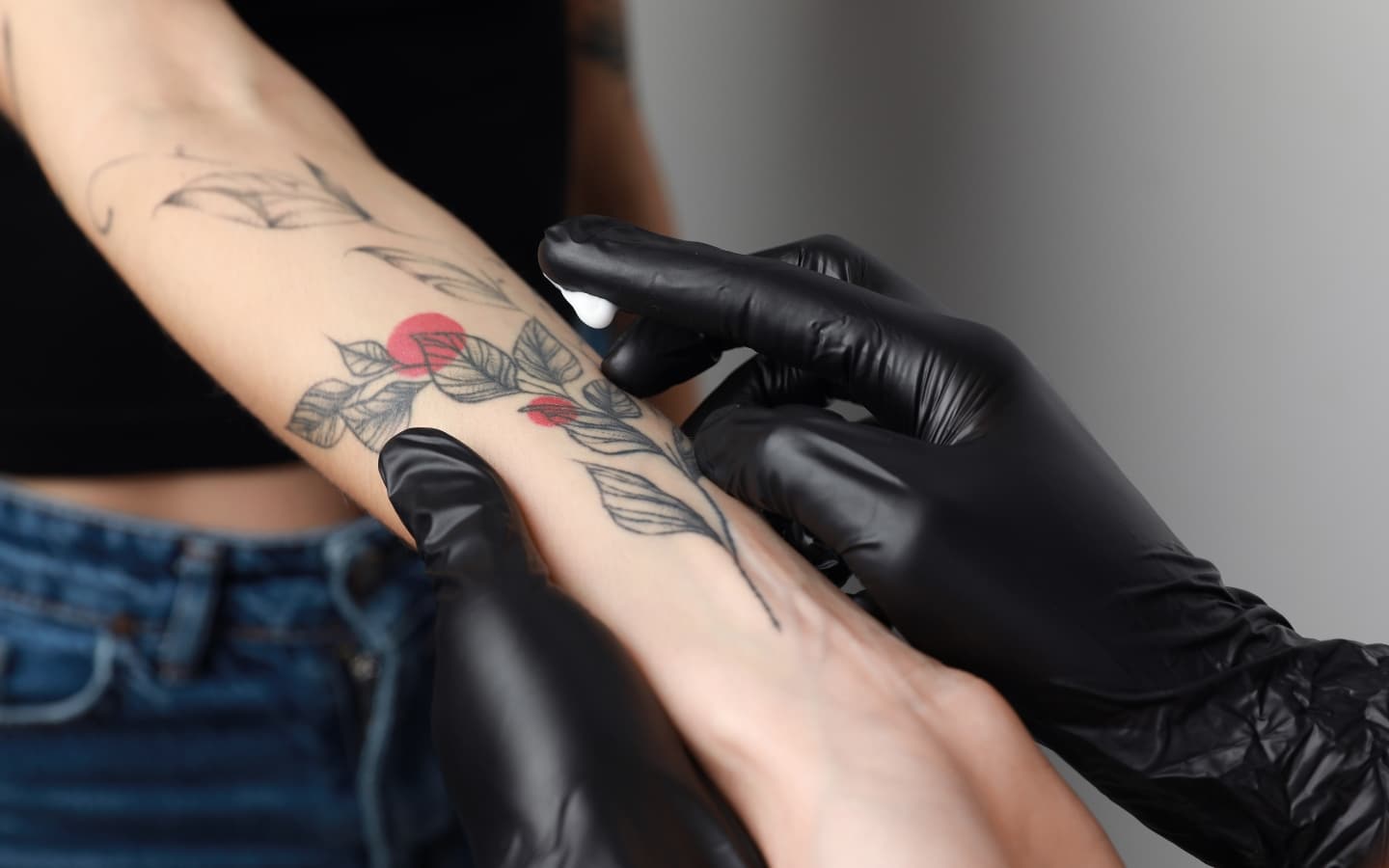
Proper aftercare is vital for the longevity and vibrancy of a tattoo. Immediately after getting a tattoo and during the healing process, how you care for your new ink can significantly impact its future appearance.
If you're looking for some of the best Tattoo aftercare products on the market, we have a list of some of the most trusted brands available for your peace of mind.
As stated previously, by following your tattoo artist's instructions closely, you’ve already taken the first crucial steps to a long-lasting tattoo.
Typically, this involves covering the tattoo for the first few hours, then gently washing the area with mild, unscented soap and water.
Patting the area dry and applying a thin layer of a recommended aftercare ointment is crucial.
Keeping the tattoo moisturized is also essential. By using a fragrance-free, alcohol-free moisturizer to keep the skin hydrated, you can avoid dry skin that can cause excessive flaking, which may prematurely fade the tattoo ink.
As your tattoo heals, make sure to keep it out of the sun. Fresh tattoos are particularly sensitive to sunlight, and exposure can cause significant fading and damage to the delicate healing skin.
During the healing period, try to avoid soaking your tattoo in water. This will mean no swimming in pools, oceans, or soaking in baths, as prolonged exposure to water can lead to ink loss and increase the risk of infection.
As the tattoo heals, it will itch and possibly flake, so try not to scratch or pick at it. Picking can remove scabs prematurely, pulling out ink and causing patchiness or scars.
Regular Touch-Ups
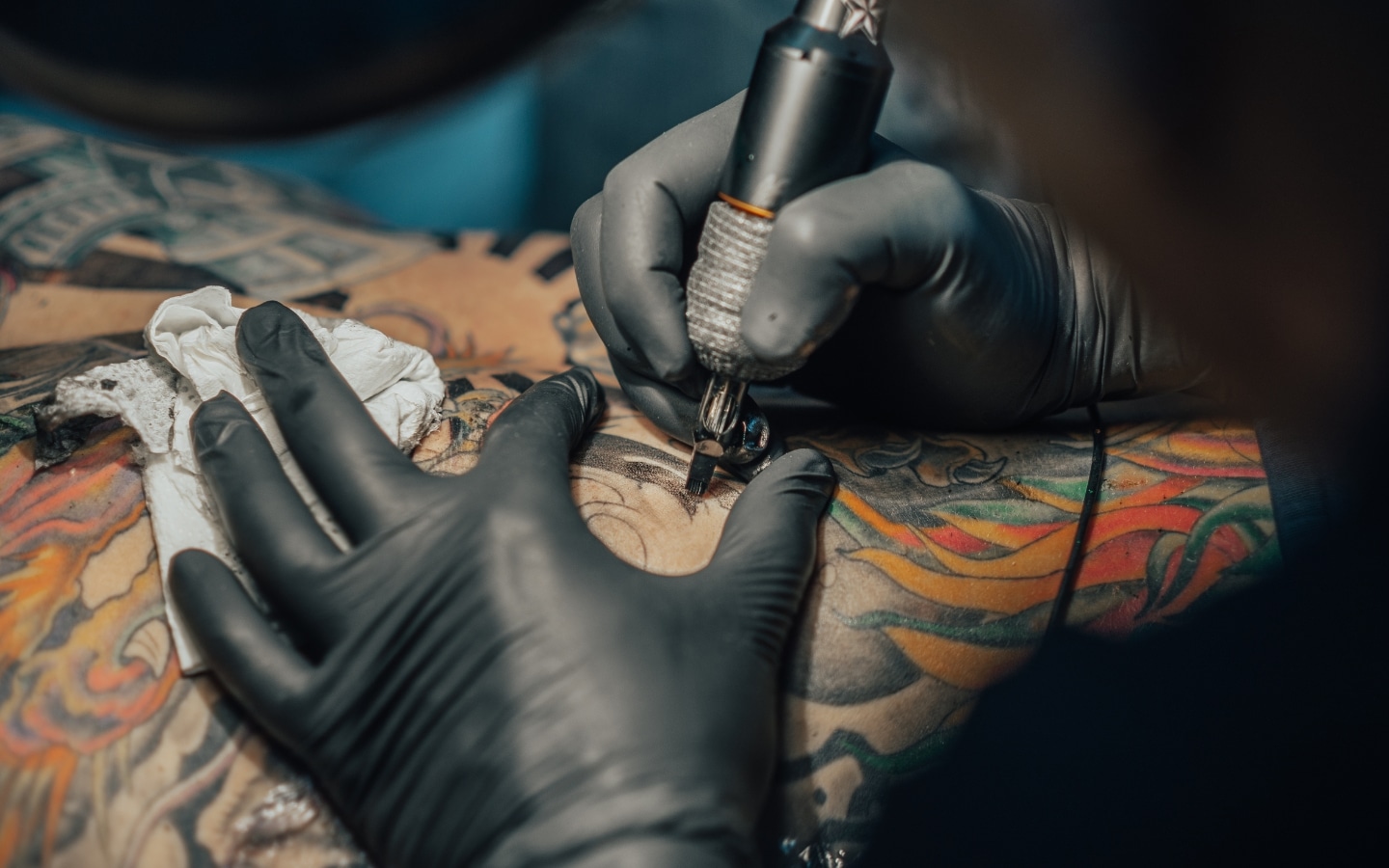
Even if you have gone through impeccable aftercare and protection, your tattoos can fade over time due to the previously mentioned reasons, so regular touch-ups are a way of maintaining the original vibrancy and detail of your tattoo.
A Tattoo touch-up may be needed every few years, especially for tattoos that come with lots of color or in places that are frequently exposed to the sun.
However, the timing of a touch-up can vary based on the tattoo’s location, the quality of the ink used, the complexity of the design, and individual skin characteristics.
Touch-up sessions can rejuvenate a tattoo by enhancing faded colors and defining any blurred lines.
This process not only revitalizes the appearance of your tattoo but can also extend its lifespan by integrating fresh ink into areas that have faded.
It's also best to return to the same artist who did the original work, as they are familiar with your tattoo and how it has aged.
If this isn’t possible, choose an experienced artist who specializes in touch-ups and can match the original style and colors.
Like the original tattooing process, preparing for a touch-up involves ensuring the skin is in good condition. Hydrated, healthy skin will take to the ink better, resulting in a smoother touch-up session.
Conclusion
As you can see, understanding the factors contributing to tattoo fading is crucial for anyone looking to preserve existing tattoos.
While some fading may be inevitable, a lot can be done to slow down these processes and help maintain the beauty of your tattoos.
By protecting tattoos from UV exposure, choosing quality inks and skilled artists, following meticulous aftercare guidelines, and maintaining a healthy lifestyle, you can significantly enhance the longevity and vibrancy of your body art.
- Fish Tattoos - July 25, 2024
- Bearded Dragon Tattoo - July 23, 2024
- Video Game Tattoo Ideas - July 19, 2024

